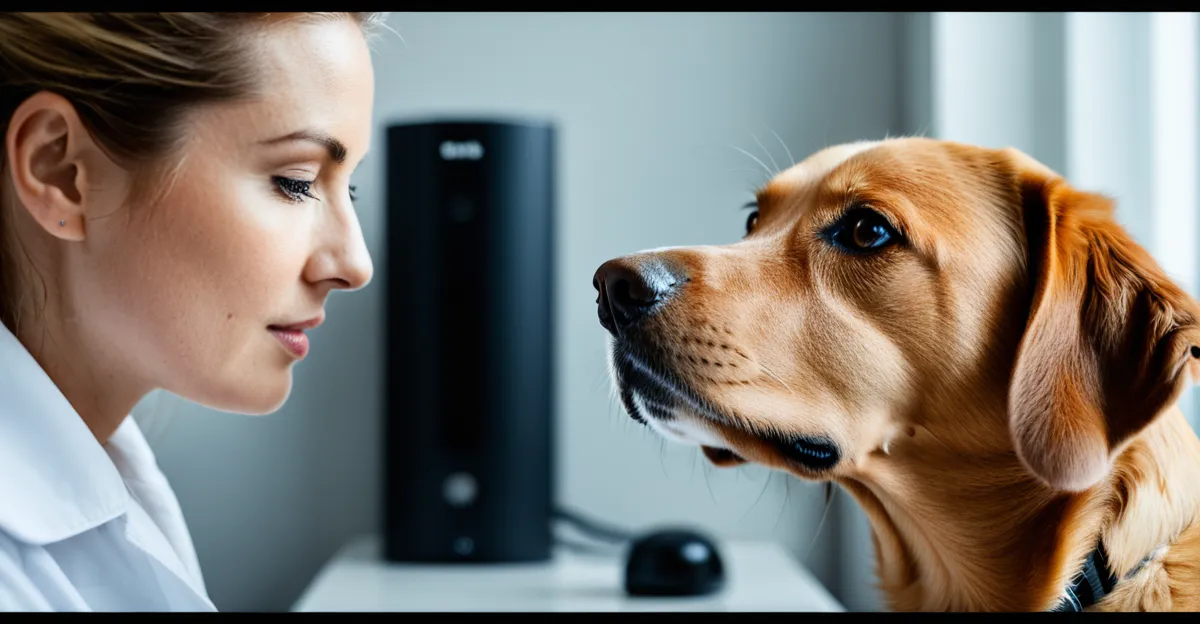How technology is transforming pet care in the UK
The pet care technology UK sector has surged, reshaping how owners care for their furry companions. Rapid advances in digital tools and smart devices define key pet tech trends. These innovations improve health monitoring, safety, and convenience.
UK-specific companies and startups play a pivotal role in this transformation. From developing GPS collars to sophisticated health tracking devices, British innovators have positioned the UK as a hotbed for British pet technology. This growth mirrors a wider pet tech industry boom, driven by increasing demand for accessible, tech-savvy pet solutions.
Topic to read : How can you ensure your pet’s health with UK vet services?
The market trends highlight an appetite for integrated systems combining wearables, apps, and automated care tools. Such technology enables real-time tracking of pet activity and health, while easing owners’ responsibilities. It also fosters proactive health management, reducing vet visits through early illness detection.
These advancements not only boost pet wellbeing but also support responsible ownership. As a result, the UK leads in adopting and refining pet care technology UK, setting standards that blend innovation with practical pet care needs. This evolution reflects a smart, caring approach to pet ownership grounded in cutting-edge yet user-friendly technology.
In parallel : How Can Pet Ownership Improve Your Daily Routine?
Benefits of wearable pet trackers and health monitors
Wearable pet trackers and health monitoring devices have revolutionised pet care technology UK by providing continuous insights into pets’ wellbeing. These compact gadgets track activity levels, sleep patterns, and vital signs, enabling owners to monitor health in real time. Early detection of anomalies, such as unusual activity or changes in heart rate, allows prompt veterinary consultation, enhancing preventive care.
GPS collars UK are especially impactful in reducing lost pet incidents. High-precision location tracking shortens recovery times significantly. The devices use real-time data transmitted to smartphones, offering peace of mind to owners with adventurous or outdoor pets. This technology not only helps locate pets quickly but also alerts owners if their pet leaves a designated safe zone.
Data collected by health monitoring devices fuels AI-driven health insights, informing personalised care. Insights from activity data can guide adjustments in exercise or diet, fostering healthier lifestyles and detecting issues before they become serious. The rise of such wearables illustrates a key pet tech trend in British pet technology: merging convenience with enhanced health outcomes. This trend drives growth in the pet care technology UK sector by addressing practical challenges with innovative solutions.
Advancements in tele-veterinary services
Tele-vet services UK have expanded rapidly, offering pet owners convenient access to expert care without leaving home. Online vet consultations allow real-time video or chat interactions with qualified veterinarians, bridging gaps for rural or busy owners. These platforms reduce travel time and stress for both pets and owners, making vet care more accessible.
How do tele-vet services UK improve pet care? They provide prompt advice for non-emergency issues, triage urgent cases, and guide medication administration. This timely support can prevent health problems from escalating, enhancing overall pet welfare.
Leading UK-based tele-vet platforms integrate with health monitoring devices to share real-time data during consultations. This synergy optimises diagnosis accuracy and customised treatment plans. Virtual pet care also supports mental health by enabling follow-ups and behaviour consultations, fostering holistic wellbeing.
Overall, tele-vet services UK represent a key pet tech trend—leveraging technology to transform traditional veterinary care into flexible, accessible solutions. This innovation complements wearable and digital pet care technology UK, creating a connected ecosystem for smarter, more efficient pet healthcare.
Smart feeders and automated pet care at home
Smart feeders represent a significant leap in pet feeding technology, combining convenience with precise nutrition management. These devices automate meal portions and feeding times, reducing risks of overfeeding or missed meals, which is crucial for pets with specific dietary needs. Many smart feeders enable owners to schedule multiple meals daily via companion apps, offering remote control from smartphones.
Automated pet care extends beyond feeding. Some systems incorporate water dispensers and even play interactive roles, engaging pets during feeding times. Integration with broader pet care technology UK platforms allows syncing feeding data with health and activity logs, giving a comprehensive view of pet wellbeing.
The benefits include improved diet management, especially for pets with weight or health issues requiring strict portion control. Additionally, automated routines suit busy owners who cannot always adhere to strict feeding schedules. Through feedback collected by sensors or apps, these devices help adjust diets based on pets’ activity or health data—an emerging pet tech trend that supports proactive care.
UK startups spearhead innovation in this field, designing feeders compatible with smart home ecosystems, which enhances overall pet care systems. This fusion of automation and connectivity symbolizes the future of British pet technology, making daily care smarter and more adaptive.
Digital apps supporting responsible pet ownership
Digital pet care apps UK have become essential tools for modern pet owners, streamlining management of pet health and daily routines. These apps typically offer features such as scheduling reminders for vaccinations, medication, grooming, and exercise. By automating these tasks, owners can maintain consistent care without missing critical dates.
How do digital pet records enhance ownership? They centralise vital information—medical histories, microchip data, and behavioural notes—making sharing with vets or sitters seamless. This reduces errors and improves coordination between caregivers. Also, apps often provide tailored health tracking, allowing owners to log weight changes, diet, or symptoms, which supports early detection of potential health issues.
Many UK apps ensure compliance with UK pet care regulations by reminding users of legal requirements such as vaccination schedules or pet licensing. This encourages responsible ownership aligned with national standards.
Popular platforms also connect users to local services and emergency contacts, integrating practical support into one interface. As pet tech trends advance, these apps exemplify how British pet technology fosters proactive, informed, and responsible care, making complex management tasks more accessible and efficient for owners nationwide.
Expert insights and UK regulatory considerations
UK pet care regulations shape the development and use of pet care technology UK, ensuring innovations align with animal welfare and legal standards. For example, devices like GPS collars UK must comply with data protection laws, as they collect location and health data. Experts emphasise the importance of transparency and consent in handling such sensitive information.
British veterinarians advocate that ethical pet technology respects animals’ dignity while enhancing care quality. They highlight the need for devices and apps to support, not replace, professional veterinary judgment. Organisations also recommend that tech solutions remain user-friendly to encourage responsible use among all pet owners.
What are the key UK laws impacting pet tech? Current regulations govern microchipping, pet identification, and data privacy. For instance, mandatory microchipping laws underscore the role of technology in pet recovery but also require compliance with strict data management protocols. Animal welfare acts demand that all technology must prioritise pets’ health and comfort.
Overall, experts urge a balanced approach: adopting innovative British pet technology while safeguarding privacy and ethics. This guidance fosters trusted growth within the pet tech trends landscape, helping pet owners make informed choices that benefit both pets and their communities in the UK.



